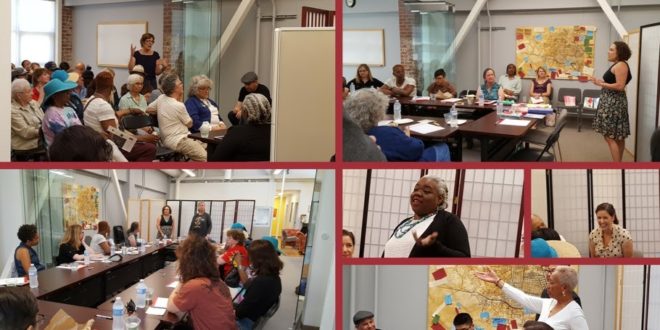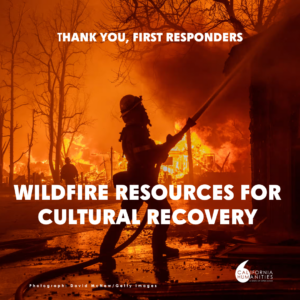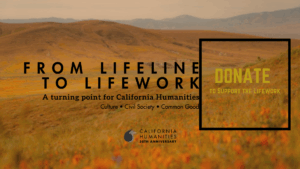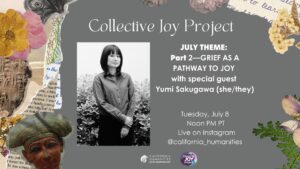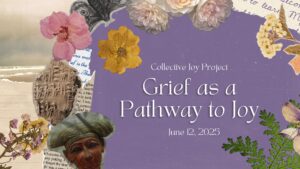In conjunction with the Swan’s Market 100th Anniversary celebration hosted by the East Bay Asian Local Development Corporation, California Humanities hosted a panel discussion and a participatory flash memoir writing workshop.
The panel “What Makes a Neighborhood” drew a full crowd of over 50 people. Jeremy Liu, Senior Fellow for Arts, Culture and Equitable Development at PolicyLink, moderated the discussion by eliciting a number of questions and comments from attendees.  Panelists Gayle (Asali) Dickson, Prof. Kimberly Mayfield and Oakland Mayor Libby Schaaf introduced themselves while speaking to the topic of the conversation– how we maintain our values of community while confronting change in the form of gentrification and displacement.
Panelists Gayle (Asali) Dickson, Prof. Kimberly Mayfield and Oakland Mayor Libby Schaaf introduced themselves while speaking to the topic of the conversation– how we maintain our values of community while confronting change in the form of gentrification and displacement.
Community members and the panelists shared their appreciation of the history of Swan’s Market as well as addressing the concerns of the connection between redevelopments and displacement. The panel discussion was an opportunity for a public conversation on how we build communities that are livable, stable and sustaining.
 Following the panel, writer and author Frances Lefkowitz hosted a memoir writing workshop which delved into the sense of place by creating a space for participants to write based on the prompt “I come from a place where…” She sees this prompt as a way to get writers and non-writers alike to think about the sights, smells, sounds and social rules that govern the places we come from– the neighborhoods, the childhoods, and societies. Participants wrote during a series of 5 minute sessions and then volunteered to share what they wrote and discuss the elements that struck them- the sensory experiences or the specific names of people or street corners. Writing about and through memory and images reminds us of why community matters.
Following the panel, writer and author Frances Lefkowitz hosted a memoir writing workshop which delved into the sense of place by creating a space for participants to write based on the prompt “I come from a place where…” She sees this prompt as a way to get writers and non-writers alike to think about the sights, smells, sounds and social rules that govern the places we come from– the neighborhoods, the childhoods, and societies. Participants wrote during a series of 5 minute sessions and then volunteered to share what they wrote and discuss the elements that struck them- the sensory experiences or the specific names of people or street corners. Writing about and through memory and images reminds us of why community matters.
Watch the video of the panel discussion below:

